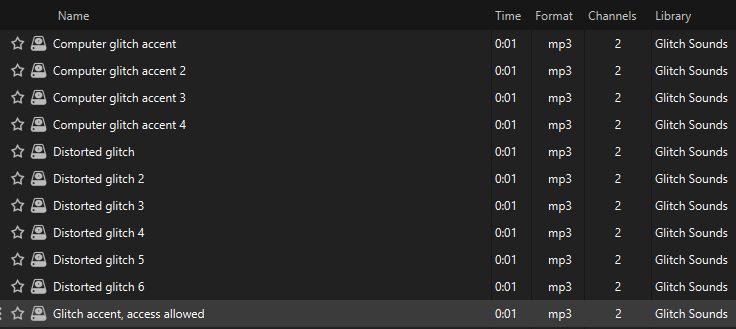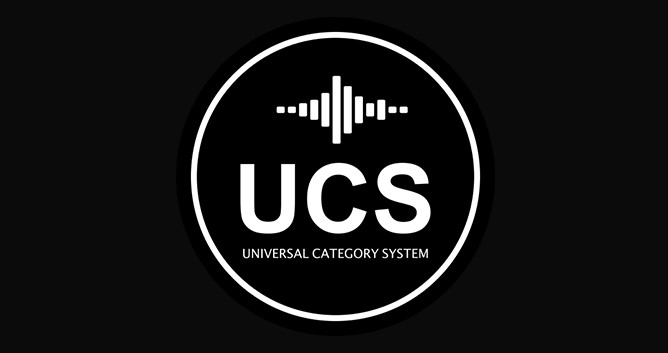Metadata, in general, is information about other information. It is presented to make it easy to find, understand and describe the file’s contents in detail. People can use this kind of information to search for, sort, and play files. Marking up an audio recording with appropriate descriptive metadata makes it easier to find.


Audio file metadata contains information about audio files such as Artist name/album title/track title/genre etc., which can be used to identify audio files using the Universal Category System (UCS). In this article, we’ll cover more information about Metadata and the Universal Category System.
What Is Audio File Metadata?
Audiofile Metadata is data that contains information about audio files. This can be a song title, a genre of music or an artist name and it’s usually used to describe information in databases and web pages.
Sound files may also include metadata descriptive of the associated content (as opposed to recording-related metadata). This is most commonly either basic information about the artist(s), composer(s), publisher, etc., often accompanied by copyright information, or track listings for recorded media where multiple tracks are included in one file.
In essence, Metadata in Digital Audio Files can track:
- Artist
- Library
- Track Title
- Genre
- Channels
- Sample Rate
- Format (.mp3, .wav, etc..)
- Track Lenght
This type of data uses indexing methods such as full-text searches on titles, composition details, composer names, or lyrics. It is also essential to include structural metadata so that search engines can find the specific location within audio files based on their structure.
Types of Audio File Metadata
The Audio file-Metadata standard allows one to uniquely identify a musical performance or sound effect and all instruments, performers, and even producers involved in making a recording with a unique reference number.
There are multiple types of metadata in relation to audio files, including:
- Structural Metadata – (file structure) that describes where the sounds are located within the file; It describes the types, versions, and relationships of digital assets.
- Descriptive Metadata – (what type of sound is in each location); Descriptive content such as title, author, publishing date, subject, publication house, and description are all included. Descriptive elements aid in the discovery and location of digital resources.
- Administrative Metadata – (how someone may use the file). Rights management metadata is administrative data that informs you about copyright, user limitations, and license agreements that may put a limit on the software’s usage.
To break it down a bit further, if the sound effect is the data, then the metadata, in this case, is the sound effect title, the track length, the BPM, or genre. This is effectively used as SEO for your sounds, and it’s also an excellent catalog management program.
What is the Universal Category System (UCS)?
The Universal Category System (UCS) was created by a variety of sound engineers, vendors, and other people from all over the world with the aim of providing guidance and direction on how to classify and integrate metadata.


The Universal Category System is an attempt to standardize the categorization and sort of classification of sound effects, particularly for film and video. It aims to provide a metadata standard for categories used in professional sound. Many top sound experts have helped develop it over time. Even though sounds are recorded in many languages, common file names and document structure allow for simple and seamless data integration via search/database applications.
The UCS is similar to other metadata classification systems like Dublin Core and MARC, or ISBN, but includes a lot more audio-specific data. It is used to index metadata in audio formats such as AIFF, WAVE, or Broadcast WAV files, including ID3 tags in MP3 files. Therefore, it is only relevant for professional sound engineers.
Since Audiofile metadata can’t be read by common software, it’s not relevant to the average computer user. Specific software that can read and write audio file metadata include:
Sound engineers are usually more interested in the Universal Category System (UCS), which has been built upon Audiofile-Metadata and offers additional structures and many more categories for indexing and organizing digital sound files. It is important for any professional who regularly deals with digital music or other types of audio data.
Conclusion
Audiofile metadata is an important part of digital audio files, and it helps to track a variety of information about the audio content such as the artist or composer and the track listings for recorded media. It’s has been widely utilized by sound engineers and featured in most professional digital audio workstation applications.
The Universal Category System builds upon the Audio File-Metadata approach and offers a more usable standard for organizing, indexing, and searching sounds.